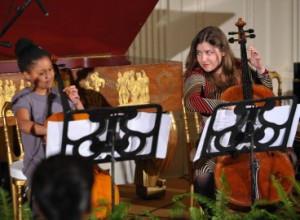
A blogger with The Washington Post followed up on yesterday’s performance at the White House, commenting that the presidential exposure and attitude towards classical music is encouraging. A White House spokesperson said the event won’t be the last to feature classical music, and those in attendance noticed how the President seemed very involved in the performances.
While the press did not have access to the masterclasses conducted by world class musicians including Sharon Isbin and Joshua Bell, they were allowed to hear the two performances of the day as well as Mrs. Obama’s remarks. Click to read the perspectives of the Washington Post and Baltimore Sun.
If you missed our last article on the event, read it here.
Classical Is In The (White) House
Roof Not Yet On Fire
Is Orchestra Hero Next On The Table For Game Developers?
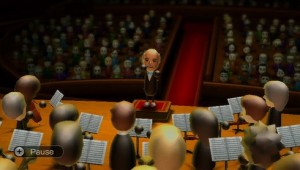
A recent entry on the NY Times blog, The Score, talks about the phenomenon video game franchises Guitar Hero and Rock Band. Author, Michael Gordon, asks what thousands of music students have been saying since the game’s inception 5 years ago: “So why not orchestra hero?” Who wouldn’t want to play the violin solo from Scheherazade, or the trumpet opening for Mahler’s Fifth Symphony?
Gordon goes on to discuss the foreseeable problems with such a manifestation of the popular franchise. For example, the basic Rock Band set (guitar, drums, microphone) carried a retail price of nearly $200 at launch. One can only imagine what a basic orchestra set would cost; undoubtedly out of the range of most of the target audience.
I have a question, how much would it cost to gain the rights to the works of Beethoven, Brahms, or Tchaikovsky? Enough to further inflate the costs of the game to epic proportions? Probably.
Look at the recently released Beatles Rock Band, which carried a price of $249 for the game with instruments, and $59 for the game alone. Even die-hard Beatles fanatics like myself couldn’t let ourselves hand over the cash for the bundle, which came out less than 2 months ago and is already on sale for 20% off at Best Buy. The reason behind the high cost? According to executives, Yoko Ono (owner of the rights to a large chunk of Beatles songs), gave developers “hell”, and forced redesign after redesign, causing production costs to be unusually high. I can see a similar situation arising in attempts to digitize the great classical works.
View Full Article »
Juilliard Acquires Beethoven and Mendelssohn Manuscripts
Musicians Discouraged from Bringing Pencils
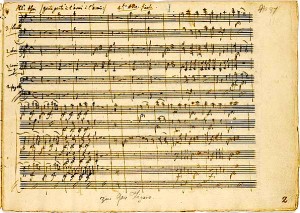
To mark the completion of a $200 million addition, The Juilliard School will host a lecture event tonight at Alice Tully Hall. The school is expected to announce the acquisition of two original manuscripts as gifts from Bruce Kovner, chairman of Juilliard and billionaire trader. Including the two newest articles, Kovner will have donated 140 manuscripts to the Juilliard archive.
The two items include a copy of Beethoven’s “Kreutzer” sonata and Mendelssohn’s “Elijah,” each containing revisions and notes by its respective composer. There will be a concert as part of the event showcasing other works whose manuscripts have been obtained. This includes Beethoven’s “Grosse Fuge” and the last act of Mozart’s “Le Nozze di Figaro.”
Kovner has expressed his intent to make these manuscripts available to scholars, having already begun processing the artifacts for access on juilliardmanuscriptcollection.org Read about the event, the acquisitions, and the archive here (source: NYT).
Guest Conductor
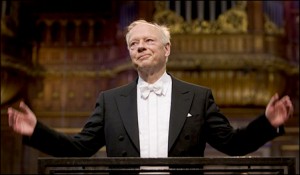
It is becoming almost a standard rite of passage for young musicians: their first experience with some legendary conductor. Whether this takes place at a summer festival, all-state orchestra, or in the college/conservatory field, it is almost always a memorable experience. Musicians know what I’m talking about. You’re probably thinking about that time you played under Michael Tilson Thomas, Lorin Maazel, Leonard Bernstein, I could go on…
In a recent article, the New York Times chronicles a visit by veteran conductor, Bernard Haitink, to the Juilliard School in New York. Haitink conducted the Royal Concertgebouw Orchestra of Amsterdam for over 25 years, and for a time was the principal conductor of the Chicago Symphony. He is the quiet type, meaning, it would not surprise you to go through an entire symphony without hearing so much as a peep from his lips. When he does speak, you can be sure that the entire orchestra is listening.
Detailing 2 days worth of rehearsals, a comedic episode when fellow conductor Michael Tilson Thomas just decided to stop by, and all the ups and downs of an intense concert program featuring Brahms’ Second Symphony, the article is a worthy read, and sure to take you back to a great memory of your first summer at Tanglewood.
Getting to Know You, and the Score Too
Michelle Obama Advocates for Classical Music
Turns White House Into Concert Hall
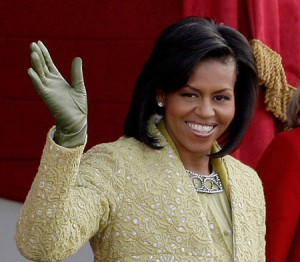
A post on WQXR reports that First Lady Michelle Obama will host an event at the White House on Friday to advocate extra-curricular arts programs. The event will feature world class musicians Joshua Bell, Sharon Isbin, Awadagin Pratt, and Alisa Weilerstein, all of whom will teach 120 middle and high school students from around the country. Following their seminars, the musicians will give a recital in the White House’s East Room. The concert will be attended by the students and guests, as well as the First Family.
Source: WQXR.
Exclusive: Interview with Susan Waterbury
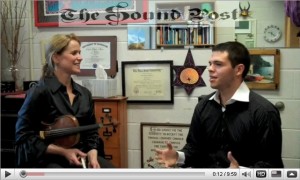
I had the pleasure of sitting down today with Susan Waterbury, Associate Professor of Violin at Ithaca College. In this Sound Post exclusive interview, Ms. Waterbury talks about the inspiration for her upcoming recital, the experience of collaborating with Jeffery Meyer, and the importance of musicians reaching out into their communities to spread their talent.
Susan Waterbury is Associate Professor of Violin at Ithaca College and a former member of the renowned Cavani Quartet. Waterbury has given masterclasses and recitals in major conservatories both in the US and abroad. She studied with Donald Weilerstein.
Check out her recital on Sunday November 1 at 4pm in Hockett Recital Hall at Ithaca College. Video after the link.
View Full Article »
Levine’s Return Delayed Further
Maazel to lend a hand
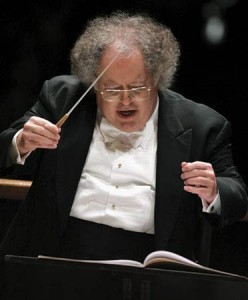
Some unfortunate news for fans of the BSO and Metropolitan Opera: James Levine, who was scheduled to return to the podium last week, is now not expected to return until December.
In case you didn’t know, Levine recently underwent back surgery. An initial prognosis for no more than a handful of missed performances has now been amended into almost half his season. The surgery comes as the latest in a string of health problems for the Maestro, who had rotator cuff surgery in 2006, and had a cancerous cyst removed from a kidney in July of 2008.
Perhaps the most disappointed are fans of the BSO, who are in the midst of a complete cycle of the Beethoven Symphonies, all of which Levine has pulled out of. While some patrons may be content with the recent announcement that Lorin Maazel, former music director for the NY Philharmonic, will conduct at Symphony Hall between October 30 and November 7, it is of no doubt that many are feeling a sense of dismay.
View Full Article »
Alan Fletcher Resigns From Post At Aspen
Never liked cold to begin with
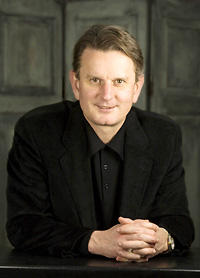
‘Tis the season for change apparently. Alan Fletcher, president and CEO of the acclaimed Aspen Music Festival and School, has announced his intention to resign at the end of the month. After only three summers, the decision has surprised patrons and teachers alike.
Speculation is that heated politics towards the end of the 2009 summer were a catalyst for the move. Similar action was taken by former president and CEO of Aspen, Don Roth, who resigned in 2005 after idiosyncratic attacks on his personal life.
Disparagement of Fletcher began when he announced cutbacks in the budget for 2010. Several faculty members got a pink slip, the concert calendar lost a week, and the maximum student enrollment dropped from 750 to 625.
Fletcher’s resume sports a long list of impressive positions, such as Provost and Senior Vice President at the New England Conservatory, and Head of Music at Carnegie Mellon University. So we doubt he will be disappearing from the classical scene any time soon. We wish you luck Mr. Fletcher.
Aspen Music Festival CEO steps down





